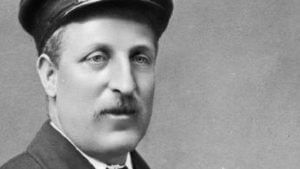100th anniversary of Capt. Charles Fryatt’s execution
Captain Charles Fryatt, Mercantile Marine
Captain Charles Fryatt worked for the Great Eastern Railway Steamship Company, commanding a passenger ferry on the Harwich Rotterdam route.With the Netherlands being neutral during the First World War, this was the only regular North Sea crossing to remain open.

Image: www.bbc.co.uk
On 2nd March 1915 Fryatt’s ship, the SS Wrexham, was challenged by a U-boat but he refused to stop. Chased for 40 miles at 12 knots and arriving with scorched funnels as a result, the Wrexham reached Dutch waters with the submarine only yards behind. Fryatt was presented with a gold watch by his employers.
On 28th March Fryatt had command of the larger and faster SS Brussels. Inbound to Rotterdam, close by the Maas light vessel, he was challenged to stop by U-33 but refused and tried to ram the submarine which dived and just escaped but was probably damaged. Fryatt was presented with a gold watch by the Admiralty, another by the Mayor of Harwich and his name was mentioned in the Commons. There was outrage at his piracy in Germany.
On 22nd June 1916 Fryatt and the Brussels, having escaped a number of German ambush attempts, was on passage from Rotterdam to Tilbury when at around 0030 the ship was hemmed in by several German destroyers. Being unarmed he was forced to surrender and the ship and its 45 crew were taken to Zeebrugge and then on to Bruges and imprisoned. On 27th July two-and-a half hours after conviction as a franc tireur� (irregular military) at a travesty of a court martial, Fryatt was executed by firing squad despite being a civilian non-combatant. He was buried in a Bruges cemetery used by the Germans for spies. At a public meeting in Trafalgar Square there was a call for Fryatt’s death to be avenged:
On 7th July 1919 Fryatt’s body was repatriated by a RN destroyer, HMS Orpheus, escorted by two others, HMS Teazer and HMS Taurus, to Dover then by train to Charing Cross, the purple-lined luggage van being that used previously for Edith Cavell’s coffin and in 1920 for that of the Unknown Warrior.
On 8th July Fryatt’s coffin was conveyed on a gun carriage from Charing Cross to St Paul’s for the funeral service. Even The New York Times� reported that hundreds of thousands lined the streets for the occasion. The coffin was taken subsequently to Dovercourt, Harwich, for burial, in Fryatt’s home port.
There is a memorial to him at Liverpool Street Station, while in the Canadian Rockies, Mount Fryatt is near Brussels Peak, named after his ship.


